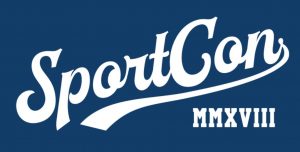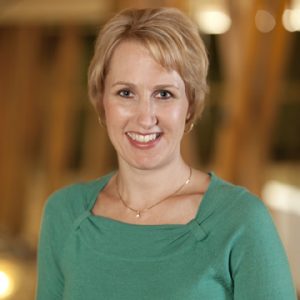For this issue of Grow & Co. I had the pleasure of speaking with President and CEO at EnergyPrint, Priscilla Koeckeritz. EnergyPrint is in the business of utility bill aggregation and energy analytics for commercial buildings. They work in collaboration with mechanical and automation companies who want to operate and maintain better performing buildings for their customers by using utility cost, consumption and carbon insight.
Priscilla started out her career as an instructor of Journalism, Public Relations and Advertising at Oral Roberts University. After deciding she wanted to get out of the classroom and build her professional experience she initially went to work for an advertising agency and then moved into marketing. She spent a number of years in the medical industry working as a marketing manager and project manager and then found her first opportunity to be part of the executive team for a creative consulting startup. During her years there, she helped take the company from a million in revenue to 8 million in revenue. Continuing in the entrepreneurial space, Priscilla had an opportunity to develop Attune, a consulting firm that worked with businesses who had various growth obstacles, with a new business partner, and eventually bought the company. During her consulting years, she met her business partner for EnergyPrint. They teamed up to start EnergyPrint in 2008, and entered the market during the worst recession of our lifetimes and in the most chaotic financial situation that could possibly exist for a startup company. Fast forward nearly ten years and they have now achieved sustained profitability and are working on their next stage of growth.
How do you hire the right people?
I’ve had successes and failures in this along the way. Overall, the biggest lesson I’ve learned about hiring is that culture is extremely important. If you hire first for culture and second for skills, very seldom do you hire someone who doesn’t find a place in your organization, whether you hired them for the exact right job or not. If you hire for culture, they tend to have a great impact on the company; then you can work on skills. Even if you hire somebody with the best skills in the world, if they’re not a good culture fit they won’t be successful, the company won’t be successful, and it will create a lot of conflict.
How do you measure success?
You can’t be a CEO, with corporate fiduciary responsibility to shareholders, and not say that success is measured by the financial bottom line. If you’re in business and you’re not running business in a for-profit way, then you’ve got a really weird idea of what business is about.
If you go beyond the fiduciary, I personally measure success based on people. As an 8 year old company. I have one person who’s been with me since the beginning, one who’s been with me for 6 years, two more that have been here for 5 years.
People continue to stay because there is a great opportunity but also because this is a great place to work. When my employees are satisfied and they are continually striving to become greater, our clients can sense that, and I feel that’s a really great measure of success.
What was one mistake you made early on?
Not having a well-founded capital plan. Entrepreneurs by our nature are overly optimistic and hopeful, I don’t think we’d start businesses if we weren’t. To some degree we have to be wired that way, but that can also be a little bit of an Achilles heel.
In our case, because we were so optimistic and hopeful, we had one idea of how the business was going to go and we were prepared to go down that track. But things didn’t go as planned and we caused a lot of pain for ourselves by not having a plan A, B and C to start.
What’s was the best decision you ever made?
Realizing that my skills translate industry and deciding to push myself out of my comfort-zone and jump into a totally new industry.
When we were starting EnergyPrint, I had spent 20 years in the creative/marketing sector. I had worked in retail, finance and medical, but it was always on the creative and marketing side of the business; I didn’t know how well all of that translated.
Now I work in a relatively technical world of energy management and utility bill analytics for commercial buildings in the construction sector. I had never touched any of these industries before this startup. It took me a couple years to realize that I had business acumen, and could apply it to a lot of different things – this ended up being one of my greatest assets. And, the fact that I didn’t know all the nuts and bolts of the industry actually made me more valuable because my perspective was open.
What inspired you to start your business?
I like to build things. People believe that all entrepreneurs are idea people, but I’m not an idea person…in that I come up with the big idea; but when I see somebody who has a great big idea and doesn’t know what to do with it, I love to play with that idea. I love to build the concept, build the strategy, and I LOVE to bring the people and build the team around taking that idea to market. That’s what inspired me most here at EnergyPrint and during my previous startups.
What motivates you?
We had a few years where what motivated me day to day was survival. Because I’d worked too hard for too long to let go of the concept.
Now that were profitable, finally, I want to build a great management team, unleash them on our industry, and look for opportunities to dynamically grow in more significant ways.
What is the number one thing you struggle with?
This is going to sound cliché because entrepreneurs say it all the time, but the number one thing I struggle with is working “on the business” as opposed to working “in the business.” It’s a daily struggle to stay focused on what we’re going to do next and the big picture things and not getting pulled into the weeds.
How would you sum up your sales philosophy?
Don’t believe that we sell anything, I believe that people buy things that they need and that they want. My approach to sales has always been asking questions: What are your problems? What keeps you up at night? What stops your business from growing? And if my company has something that helps someone overcome their business problems, then I don’t have to sell anything. When you take the approach of simply helping clients to overcome business problems, and you have a good solution, sales are easy.
What’s one business book that you would you recommend?
I love Patrick Lencioni, all of his books, but the one I recommend to anyone I hire or mentor is called “Getting Naked.” The concept of the book is all about vulnerability in business. Selling from a position of ego or capability – “we’re the biggest brand” or “we’re the best at this” – is never as good as sitting down with a blank sheet of paper, asking some good questions and being vulnerable about what you know and what you don’t know.
The book is really about this guy’s journey from being a hot-shot ad executive to reinventing himself and understanding that through being vulnerable in the business development process he was able to gain more trust. To build trust, sometimes you have to be the first one to say, “I know nothing.”
Side note: It’s a little funny when I hand a new employee a book called “Getting Naked”; I always assure them they won’t have to talk to HR after reading.
What’s one thing that you learned about yourself through growing your business?
That I get distracted easily, by both good things and bad things. In this role I am the President and CEO, so the bus stops here. In my past experiences I’ve either been a key executive working for the owner, or I’ve been one of the owners in more of a partnership situation.
In this role there’s nobody to give me guidance or tell me what to do. I really have to struggle through structuring my own time, setting my own path, guiding the important actions and getting results. I need to own that process and set an example for the rest of the company. I’ve learned a lot about myself and how to manage my distractions through this experience.
What’s more important than business in your life?
That’s easy, my faith and my family; they trump business every day of the week.
I’m married, I’ve got three boys and that’s my life. I spent the early part of my career working 80 hours a week, climbing the ladder and all the things we were taught in the late 80’s early 90’s. I found success in that, but I was also pretty unhappy at times. By the time I had my second and third children, I really had to do some soul searching about what my priorities were and put my family first. I don’t believe in pure life balance, but managing through organized chaos seems to help me balance my family with a career that I love.
What are the best and worst things about being an entrepreneur?
Being your own boss. I enjoy leading, defining company direction and having the responsibility; I love it. But if I’m really being honest, sometimes the thing that you love most is also the thing that you hate the most. Being the CEO is a lot of responsibility and it can be lonely at the top.
I’m constantly striving to be a better leader; I know when I am and I know when I’m not. I can see the shadow that I cast onto my organization and when I am doing it well, everybody is performing better all the way down. We’re only 16 people, we’re not huge, so my shadow casts very loudly.
It really is two sides of the same coin; it’s great to be the leader for the same reasons that it’s tough to be the leader.











